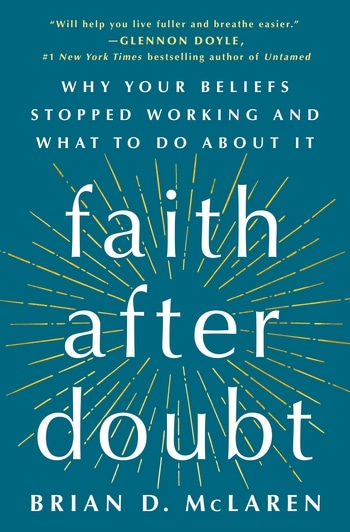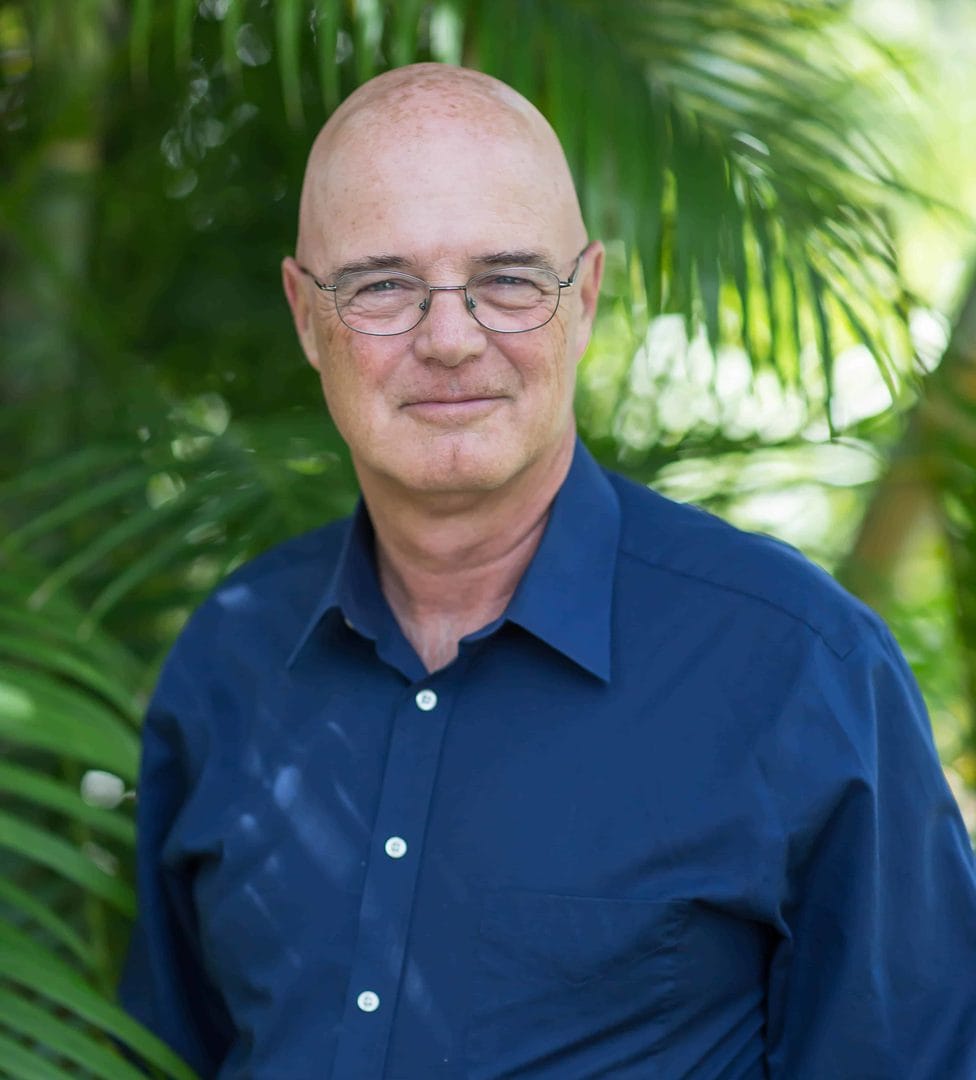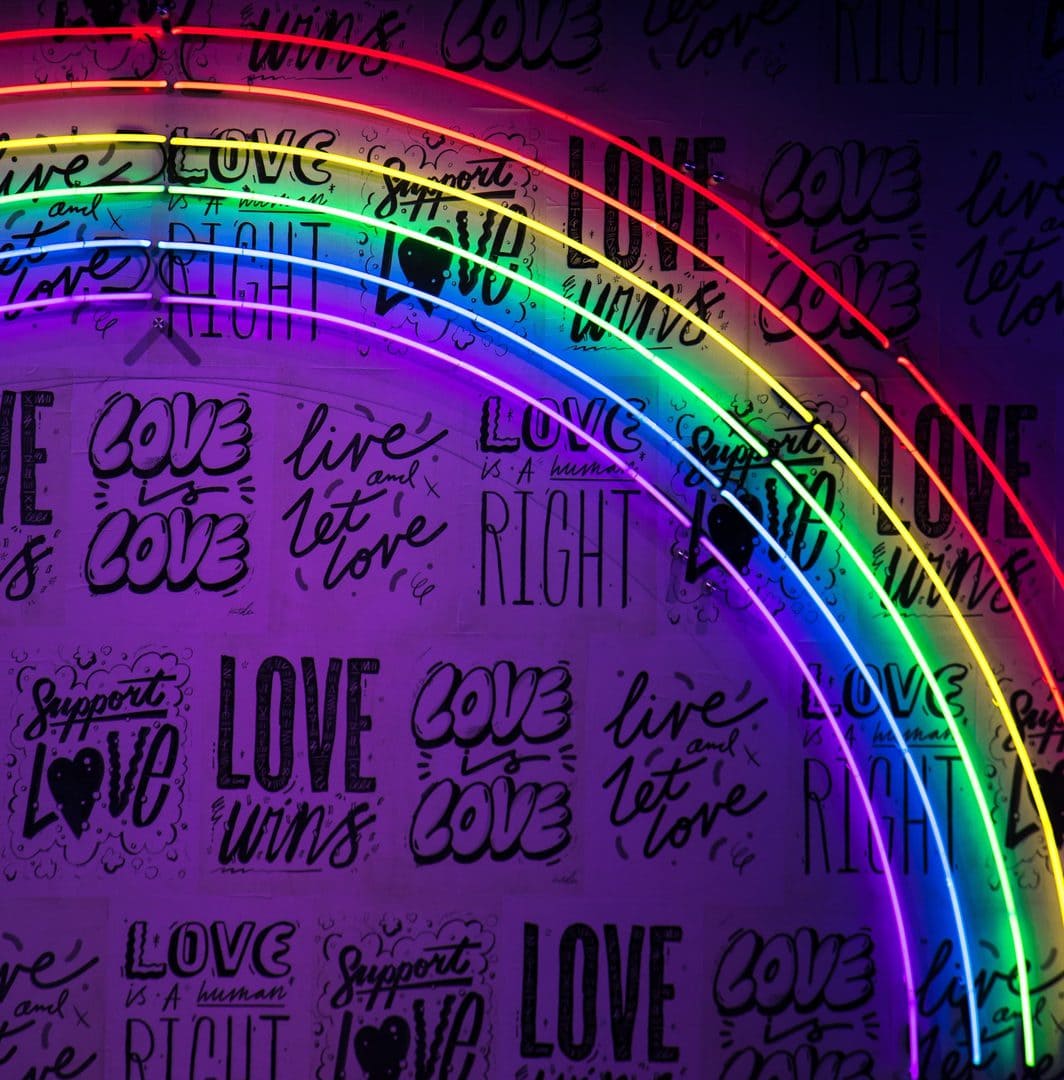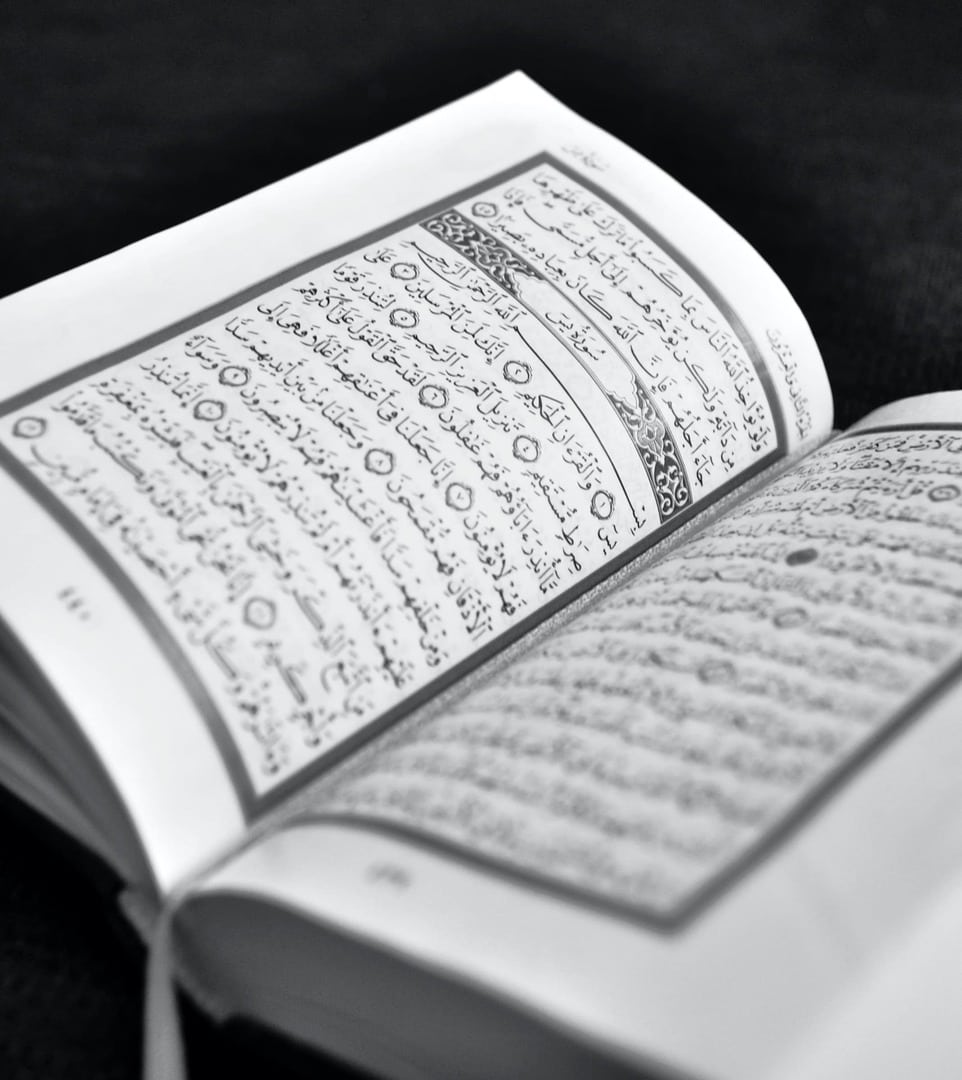Sometimes our doubts overwhelm us. The faith that sustained us and filled us with wonder as children feels shattered by doubt and lost forever. But in his latest book, author and public theologian Brian McLaren assures us with wisdom born of his own journey through doubt, that nothing is being lost. In fact, doubt is the necessary companion on our spiritual journeys.
If we allow doubt to accompany us, he explains, we will find our faith renewed by love. “Faith was about love all along. We just didn’t realize it, and it took doubt to help us see it.”
Brian has been a dear friend and mentor of the Raven Foundation for many years. He has always encouraged us to follow the nagging doubts we feel when a church teaching doesn’t create welcoming, inclusive community. When his doubts overwhelmed him, Brian was a pastor and following his doubts meant he might lose not only his faith, but his job and his community as well.
Thankfully, Brian found companionship through his doubts, the kind of companionship we hope you find here at Raven. What doubt taught Brian about faith fills the inspiring pages of Faith After Doubt and it is our great pleasure to present a full chapter from the book to encourage and nourish you on your spiritual journey.
Click here to purchase the book and continue the conversation on The Raven Foundation Facebook Page, where we share faith-building content and hold regular Facebook live discussions! Brian will be joining us for an episode of our show “One Question with Pastor Adam” soon – stay tuned!
Faith before doubt: it’s about correct beliefs. Faith after doubt: it’s about revolutionary love.
Chapter 10
+
Faith, Beliefs,
and Revolutionary Love
Love is more than a feeling. Love is a form of sweet labor: fierce, bloody, imperfect, and life giving—a choice we make over and over again. If love is sweet labor, love can be taught, modeled, and practiced. This labor engages all our emotions: Joy is the gift of love. Grief is the price of love. Anger is the force that protects that which is loved. And when we think we have reached our limit, wonder is the act that returns us to love.
—Valarie Kaur,
See No Stranger: A Memoir and Manifesto of Revolutionary Love
I have all kinds of mixed feelings about slogans. They often oversimplify and therefore mislead. But they’re pithy and memorable and therefore have some value. So, acknowledging my mixed feelings, I’d like to offer this pair of slogans to summarize the heart of our message so far:
Faith before doubt: it’s about correct beliefs. Faith after doubt: it’s about revolutionary love.
In other words, the journey of faith through Simplicity and Complexity involves learning and perfecting beliefs. The journey of doubt through Perplexity involves questioning not only specific beliefs but the whole belief system approach to faith. Then, the journey into Harmony is a journey beyond beliefs into revolutionary love.
The Olive
Branch
Take A Breath with Us
Our weekly newsletter creates a space to take a breath. Once we slow down, we can see the way desire, imitation, and conflict operate in our lives and in the world, and begin to create peace. In addition to the newsletter, you will receive the free "Unlearn the Bible" ebook when you subscribe.
By revolutionary love, I mean love beyond: love that goes beyond myself to my neighbor, beyond my neighbor to the stranger, alien, other, outcast, and outsider; beyond the outsider to the critic, antagonist, opponent, and enemy; and even beyond the human to my non-human fellow creatures. In short, revolutionary love means loving as God would love: infinitely, graciously, extravagantly. To put it in more mystical terms, it means loving with God, letting divine love fill me and flow through me, without discrimination or limit, as an expression of the heart of the lover, not the merit of the beloved, including the correctness of the beloved’s beliefs.
Now I need at this point to make clear that I am not against beliefs. Beliefs are necessary. They are interesting. They are unavoidable. But be-lief, the act of holding a set or system of beliefs, is not the same thing as faith, even though we often use the words imprecisely and interchangeably.

To explore the difference, let’s consider the insight of Alan Watts, a twentieth-century philosopher of Eastern religions who tried to capture the difference between faith and belief like this:
We must here make a clear distinction between belief and faith, be- cause, in general practice, belief has come to mean a state of mind which is almost the opposite of faith. Belief, as I use the word here, is the insistence that the truth is what one would “lief ” or wish it to be. The believer will open his mind to the truth on the condition that it fits in with his preconceived ideas and wishes. Faith, on the other hand, is an unreserved opening of the mind to the truth, whatever it may turn out to be. Faith has no preconceptions; it is a plunge into the unknown. Belief clings, but faith lets go. In this sense of the word, faith is the essential virtue of science, and likewise of any religion that is not self-deception.[1]
For Watts, then, while faith is unreserved openness to the truth—a refusal to reduce truth to what we already understand, beliefs are ideas we cling to because we wish they were true or want them to be true. Faith is like looking at the sky through a clear or open window, he says, with an openness to accepting it as it is: blue or gray, light or dark, starry or sunny, rainy or fair. But beliefs are like blue paint that people decide to apply to the window glass to be sure it will always be the color they wish it to be. He compares doubt to the “scraping of the paint from the glass” and laments that many religious people resist doubt and “confuse faith with clinging to certain ideas.”[2]
In ZeroTheology John Tucker creates a similar analogy, based on an old tale told by Hans Christian Andersen. In the fable, a prince searches around the world for a true princess to be his bride.[3] But something about each potential princess seems inauthentic. One night in a torrential rainstorm, a soggy woman knocks at the gate seeking shelter and claiming to be a princess. Could she be the one for the prince to wed, or is she another impostor? The queen devises a plan to test whether this young woman is in fact a true princess fit for her son. She puts a pea underneath twenty mattresses and puts twenty thick blankets on top of the mattresses. The next morning, the queen asks the young woman how she slept, and she answers, “Oh, very badly! I have scarcely closed my eyes all night. Heaven only knows what was in the bed, but I was lying on something hard, so that I am black and blue all over my body. It’s horrible!”
Everyone then knows this is a true princess, for “nobody but a real princess could be as sensitive as that,” so the prince takes her as his bride. Tucker uses the story to suggest that the truest part of us is sensitive to the deep uncertainty of life (the pea), and we use comforting beliefs like mattresses and blankets to try to shield ourselves from that painful reality. To the degree we remain sensitive to life’s uncertainty and pain in spite of all our layers of self-protection and all our attempts at self-delusion, we reveal our true nobility and authenticity.
Watts’s blue paint and Tucker’s mattresses help explain why, for example, people might believe in an afterlife; or in promises of divine healing, protection, or prosperity; or maybe even in divine vengeance on one’s enemies. We humans find it very natural to wish to circumvent death; escape sickness, stress, and poverty; or see our enemies get what we feel they deserve.
However, some people raised in conservative religious backgrounds like mine might object and say that we hold or have held many beliefs we actually wish were not true. They didn’t reduce our pain; they increased it.
For example, as a boy, I never wished for people I loved to be tortured in hell forever if they didn’t join my religion. Against my wishes, the gatekeepers of my religious community agreed that this belief was required by our Scriptures. So they taught the absolute necessity of this belief, and for many years, I gave my consent, against my own wishes. Similarly, as a teenager, I never wished to see sex as dirty and shameful. But the gatekeepers of my religious community found that a steady feeling of sexual shame renders followers perpetually in need of the forgiveness and absolution the gatekeepers offer, which tends to keep followers consistently compliant and gatekeepers gainfully employed. So they continued to require it and I continued to consent, against my wishes and even my common sense, for a surprisingly long time.

Likewise, I never wished for the huge body of scientific evidence that supports the theory of evolution to be massive hoax. But the gatekeepers of my religious community justified their religious authority based on a literalistic reading of the Bible, and they saw science as a challenge to their authority. So they required me to deny science as proof of my loyalty to their authority, and for a while, I complied, against my own wishes and better judgment.
In each of these cases, my beliefs were less a matter of my personal, conscious wishes and more a matter of my unconscious wish, need, or desire for belonging. My wish to belong to a certain group led me to consent to beliefs I neither wished nor thought, personally, in my heart of hearts, to be true. I painted the blue paint on the windows and piled up the mattresses not only because I wished to do so for my personal comfort but also because groups I depended on required me to do so.
That’s why I’m now convinced that religious beliefs have as much to do with group dynamics as individual wishes, and that’s why I define religious beliefs as statements or judgments that a group of religious people agrees to hold as true or correct. They often do so, as Watts and Tucker said, because they wish their beliefs were true and hope to shield themselves from the uncertainties of life. But even when that’s not the case, they “resist scraping the paint from the glass” or removing the mattresses because they wish, in a more general sense, for their group to at least to stick together. Their need, desire, or wish to belong to a group requires them to defend their group’s beliefs at great cost. Some will claim them to be good, true, and beautiful in public even if the most genuine “true princess” part of themselves suspects in private that some of those beliefs are in fact bad, false, and ugly.
In this light, my religious gatekeepers didn’t need me to wish our required beliefs were true, nor did they need me to sincerely believe them to be true, nor did they even need me to understand those beliefs enough to have an opinion! But they did need me to say I believe them and act as though I believe them, regardless of my level of understanding or certainty. Why, you might ask, would I ever agree to say I believe something and act as though I believe something that I don’t understand, haven’t really thought much about, have no way of knowing, find morally abhorrent, or am pretty sure is not actually true?
To answer this question, I return to an insight from Chapter 2: we are hive or herd creatures. For tens if not hundreds of millennia, we have survived by being part of groups. Given how interdependent we are on one another, and given how easily we can fragment and turn on one another, for scores of millennia we have found it advantageous to our survival to use public statements as pledges of agreement and allegiance, indicating our commitment to co-exist peacefully and collaborate effectively in groups. In many religious settings—and especially Christian settings—beliefs lie at the center of these agreements.[4] Clearly, in this context, beliefs don’t function as a simple matter of honest personal intellectual commitment but as a more complex matter of personal social affiliation.
Whether they’re true or not, then, belief agreements help us fractious human beings get on with surviving and thriving together. Practically speaking, people who share our beliefs, or at least say they do, have given consent to our group’s leaders. They have agreed to cooperate with our group’s norms, which makes them inherently more safe to be around.
Every time people affirm or recite what our gatekeepers require, they pass a loyalty test that makes them more worthy of our continuing trust. People who are bound together in mutual trust by shared agreements like these have all kinds of competitive advantages, especially when they compete against other groups that constantly fragment, squabble, and turn on each other. Required beliefs, we might say, are the secret weapons of competitive advantage, and they have proven their usefulness for thousands of years.
Of course, along the way, religious and political demagogues have learned to manipulate this secret weapon with great skill. One can imagine a gang of unscrupulous authoritarians toasting one another behind a curtain somewhere, gleefully boasting, “If we can get these gullible idiots to believe what we tell them to, whether it makes sense to them or not, we have them in the palms of our hands! If they are afraid to question what we label unquestionable, if they are afraid to think what we label unthinkable, we control their thoughts, which means we also control their words and their actions! At that moment, they trust us more than they trust themselves!”
It’s even better (from the perspective of demagogues) if they can compel compliant people to perjure themselves, to say they believe something they do not actually believe. Whether group members do so to curry favor or to avoid punishment, once they sell their integrity, the demagogue holds exquisite power over them. Each time members willingly exchange their integrity to gain belonging and other benefits or to avoid exclusion and other punishments, a religious cult or political dictatorship grows a little stronger.

When religious gatekeepers today demand compliance with beliefs, many people (especially people in Stage Three) smell that stale cologne of con-artistry and sweaty authoritarianism and become suspicious. Once these suspicious members dare to voice their doubts, gatekeepers discover that their authority is like a bar of soap: the more they use it, the less they have. They’re forced to capitulate on one belief and demote another belief from required to optional status, only to fall back and double down on others even more desperately. But each time leaders get their followers to affirm the group’s required beliefs, the leaders’ grip on authority remains strong, and the group reasserts its commitment to stick together.
In times of instability and change, many people (especially people in Simplicity and Complexity) become especially anxious. They need somewhere to belong. They feel nostalgic for the certainty, clarity, and belonging that authoritarian groups provide. These days, they quickly discover they don’t need to leave their homes and go to a church building or cult compound to gain the desired benefits of cult membership. From the convenience and comfort of their own homes, they can tune into mass and social media channels that will reinforce their group’s beliefs 24/7, creating the perfect self-reinforcing bubble of confirmation bias, blurring the line between being a free consumer of media and a willing victim of brainwashing. In these media bubbles, all windows show blue skies all the time, and all uncomfortable peas are cushioned with piles of mattresses.
These media bubbles allow the nostalgic to enter a time warp and experience the same sense of homogeneity that many of our ancestors shared centuries ago, when few people traveled to encounter others who thought differently and when homegrown dissenters were quickly silenced, imprisoned, banished, or otherwise dispatched.
Of course, in today’s context, doubters and dissenters don’t need to be silenced by inquisitions; they only need to be denied air time or page views by mass media programming executives or social media algorithms.

For me, the more I stepped outside of the bubble of my religious heritage, the more my inherited beliefs were challenged on every side. In university, I got to know people whose beliefs radically differed from mine. True, I had been trained to befriend them and listen to them, but only as a prelude to witnessing to them and converting them to my group’s beliefs. But when I listened, really listened, I began to see why their beliefs made sense to them and mine didn’t.
My beliefs were further challenged by scientific and historical information that was readily available in libraries and is even more readily available today online. Such information is still easy to ignore, but it’s harder than ever to suppress. My beliefs were further challenged by journalism that exposed the moral failures, corruption, and hypocrisy of the contemporary religious leaders and gatekeepers who demanded my belief compliance. My beliefs were most directly challenged by a few outspoken individuals who first dared to doubt privately and then dared to religious gatekeepers.
I was a very loyal person, respectful of authority and always ready to give the benefit of the doubt to my tradition and its spokespeople. But over time, I not only lost confidence in many of the beliefs that gatekeepers required: I lost faith in the gatekeepers themselves and their whole system of using beliefs as markers of belonging. If I was going to be a person of faith, it couldn’t be in a community that was obsessed with policing my beliefs. I needed a different understanding of faith entirely, as something beyond beliefs.
To my surprise, I discovered that at the heart of my own tradition, in the Bible I had been reading my whole life, and especially in the life and teachings of Jesus, Mary, Paul, James, and John, the fresh understanding of faith my heart was thirsty for had been waiting like a hidden spring all along.
Rather than recounting the unfolding of this discovery here (since I have written in detail about it elsewhere), I can illustrate it by contrasting biblical misquotations with what we actually find in the biblical text.
While people don’t often think of Mary as a teacher in the Bible, her short prayer known as the Magnificat is powerfully informative. She doesn’t say:
My soul magnifies the Lord,
and my spirit rejoices in God my Savior,
for he has looked with favor on the correct beliefs of his servant. Surely, from now on all generations will call me blessed;
for the Mighty One has done great things for me, and holy is his name.
His mercy is for those who hold correct beliefs about him from generation to generation.
He has shown strength with his arm;
he has scattered the doctrinally incorrect in the thoughts of their hearts. He has brought down the heretical from their thrones,
and lifted up the orthodox;
he has filled those with correct beliefs with good things, and sent the incorrect away empty.
Instead, her prayer is a manifesto of God’s loving concern for the poor, the hungry, the lowly, and the powerless. (You can read her actual words in Luke 1:46 ff.) Similarly, her son Jesus never said, when asked what is the greatest commandment:
“You shall hold correct beliefs about the Lord your God with all your heart, and with all your soul, and with all your mind.” This is the greatest and first commandment. And a second is like it:“You shall convert your neighbors who do not hold correct beliefs, and if they will not convert, you shall defeat them in a culture war.” On these two commandments hang all the law and the prophets.
Instead, he said something truly revolutionary: first, he said to love God with our whole being. Second, and equally important (which is the meaning of “the second is like it”), he said to love our neighbors as ourselves (Matthew 22:36–40). In Luke’s version (Luke 10:25 ff.), Jesus tells a parable that makes it clear that one’s neighbor includes the stranger, the other, the outsider, the outcast, and the unclean.
In the Sermon on the Mount, Jesus doesn’t teach a list of beliefs to be memorized and recited. Instead, he teaches a way of life that culminates in a call to revolutionary love. This revolutionary love goes far beyond conventional love, the love that distinguishes between us and them, brother and other, or friend and enemy (Matthew 5:43). Instead, we need to love as God loves, with non-discriminatory love that includes even the enemy.

If that weren’t revolutionary enough, we could turn to Paul, the originator of the phrase “faith expressing itself in love” (Galatians 4:6).[5] According to many of our leading religious gatekeepers today, Paul didn’t get it quite right. He should have said, “For in Christ Jesus correct beliefs about circumcision and uncircumcision are still very important; the only thing that counts is faith expressing itself through correct beliefs.”
hen he tries to summarize what God requires and desires, Paul does not say: “For the whole law is summed up in a single commandment, ‘You shall have the correct beliefs.’” Rather, he declares, “For the whole law is summed up in a single commandment, ‘You shall love your neighbor as yourself ’” (Galatians 5:14). It appears that, for Paul, if you love your neighbor, the love of God is implied, assumed, included, or experienced as a byproduct, which, of course, echoes Jesus’ words, that those who love the “least of these” actually love him (Matthew 25).
Of course, I haven’t even mentioned Paul’s famous love poem in 1 Corinthians 13 (where he does not say, “These three things remain: liturgy, polity, and correct beliefs, and the greatest of these is correct beliefs”), or his fine-tuned argument in Romans that culminates in a call to self-sacrificing love (12:9, 13:10, where he does not say, “Correct beliefs must be held sincerely. Correct beliefs fulfill the law”).
We find this theme carried on later in the New Testament. For example, James does not say this:
Religion that is pure and undefiled before God, the Father, is this: to have correct beliefs, and to affirm liturgies, hierarchies, and creeds that reflect those beliefs.
Instead, he says this:
Religion that is pure and undefiled before God, the Father, is this: to care for orphans and widows in their distress, and to keep oneself unstained by the world.
What matters to James centers in caring for people, not confessing beliefs. That’s why he goes on to say that “faith without works is dead.” Real faith is found not simply in words that express compliance but in actions that express care.
We find the same in the Epistles of John. In 1 John 4:7 ff., John doesn’t say:
Beloved, let us hold to correct beliefs, because correctness is from God; everyone who believes the required statements is born of God and knows God. Whoever does not confess the right beliefs does not know God, for God is correctness.
Rather, John says this:
Beloved, let us love one another, because love is from God; everyone who loves is born of God and knows God. Whoever does not love does not know God, for God is love.
Then, echoing Jesus’ words about the greatest commandment, John continues:
Those who say, “I love God,” and hate their brothers or sisters, are liars; for those who do not love a brother or sister whom they have seen, cannot love God whom they have not seen. The commandment we have from him is this: those who love God must love their brothers and sisters also.
Again, he doesn’t come anywhere close to saying,
Those who say, “I love God,” and hold incorrect beliefs are liars; for those who do not express correct beliefs that they can capture in words, cannot love God whom they cannot capture in words. The commandment we have from him is this: those who love God must have the correct beliefs about God.
This emphasis on love isn’t unique to the Christian Scriptures, of course. When the Torah repeatedly calls for compassionate treatment of aliens, refugees, widows, orphans, the poor, and the vulnerable, it calls Jews to make love central.<[6] The prophet Hosea echoes this emphasis when he proclaims the word of the Lord (6:6): “I desire compassion, not sacrifice.” The other prophets make similar statements in passage after passage (see Isaiah 1 and 58, or Micah 6, for example).

When the Quran says that no one is a believer until they desire for their brother or sister what they desire for themselves, and that God made us different so that we would seek to understand and know one another, it is calling on humanity to put love first.
When the gurus of Sikhism say to value others as you value yourself, and to avoid creating enmity with anyone because God is within every- one, when Taoists say to regard your neighbor’s gain or loss as your own, when Buddhists and Hindus say do not hurt others in ways you would find hurtful, and when secular humanists advocate the principle of reciprocity, they are calling on humanity to put love first.
We’re used to thinking of the real differences in the world as among religions: you are Buddhist, I am Christian, she is Jewish, he is atheist. But I wonder if that way of thinking is becoming irrelevant and perhaps even counter-productive.
What if the deeper question is not whether you are a Christian, Buddhist, or atheist, but rather, what kind of Christian, Buddhist, or atheist are you? Are you a believer who puts your distinct beliefs first, or are you a person of faith who puts love first? Are you a believer whose beliefs put you in competition and conflict with people of differing beliefs, or are you a person of faith whose faith moves you toward the other with love?
That phrase I just used, person of faith, in one sense makes a simple generalization. It serves as a description that makes room for Christians, Muslims, Jews, and so on. But I am coming to see that person of faith is not just a generalization. It is also a differentiation, in contrast to a person of beliefs. It reflects a shared desire among people in all these diverse traditions to be identified not by lists of beliefs that exclude one another but by something deeper, by faith in a universal, non-discriminatory love that calls us all together.
In that light, the word doubt can mean two very different things. When it is applied to faith that expresses itself in beliefs, it means one thing. When it is applied to faith that expresses itself in revolutionary love, it means something very different. Sometimes, it is only by doubting a religion that expresses itself in beliefs that we can discover a faith that expresses itself in revolutionary love.
That is what I mean by faith after doubt.
To some, that will sound like heresy. To others, it sounds like liberation.

Reflection and Action
- Respond to the pair of slogans at the beginning of the chapter.
- How would you explain the difference between faith and beliefs in your own words? Summarize the window and mattress analogies.
- Gatekeepers, I suggest in this chapter, are more interested in their adherents saying they affirm required beliefs than in whether or not those adherents actually believe or understand those beliefs. That may have been an overstatement. What do you think?
- Describe the relationship between beliefs and demagoguery.
- Read the actual Magnificat poem that begins in Luke 1:46 and con- trast it line by line with the altered version in this chapter.
- Respond to this rhetorical question: “What if the deeper question is not whether you are a Christian, Buddhist, or atheist, but rather, what kind of Christian, Buddhist, or atheist are you?”
- Share your emotional response to this chapter. What emotions did it stir? What feeling stays with you after reading it?
[1] From The Wisdom of Insecurity (Vintage Books, 1951), quoted here: https://www.brainpickings.org/2014/06/27/alan-watts-belief-vs-faith/. I should add that there are other accounts of the et- ymology of the word belief. The English word seems to have been derived in the twelfth century from the German verb louben, meaning “to love” or “hold dear.”
[2] The term psychologists use for clinging to desired beliefs is “confirmation bias.” Interestingly, for Watts, then, belief means surrendering to confirmation bias, while faith means resisting it. For more on bias, see my short e-book, Why Don’t They Get It? Overcoming Bias in Others (and Yourself), available here: https://brianmclaren.net/store/.
[3] See ZeroTheology (Cascade, 2019).
[4] In The Future of Faith (HarperOne, 2009, especially Chapters 5–7 and 10), Harvey Cox explores some of the reasons behind the intense focus of Western Christians on beliefs since the fourth century.
[5] In light of the original Greek, the phrase could be rendered, “the only thing with power or value or worth is faith energizing through love” or “faith working through love.”
[6] In Proverbs, for example, the way we treat the poor is the way we treat God: see Proverbs 17:5 and 19:17, along with 14:21, 21:13, 22:2, 22:9, 22:16, 22:22–23, 28:7, 29:7, and 31:19.
